上海交大赵大海关于新冠疫情第8次在电视台访谈评论:英国“温和”的新冠肺炎防控效果堪忧
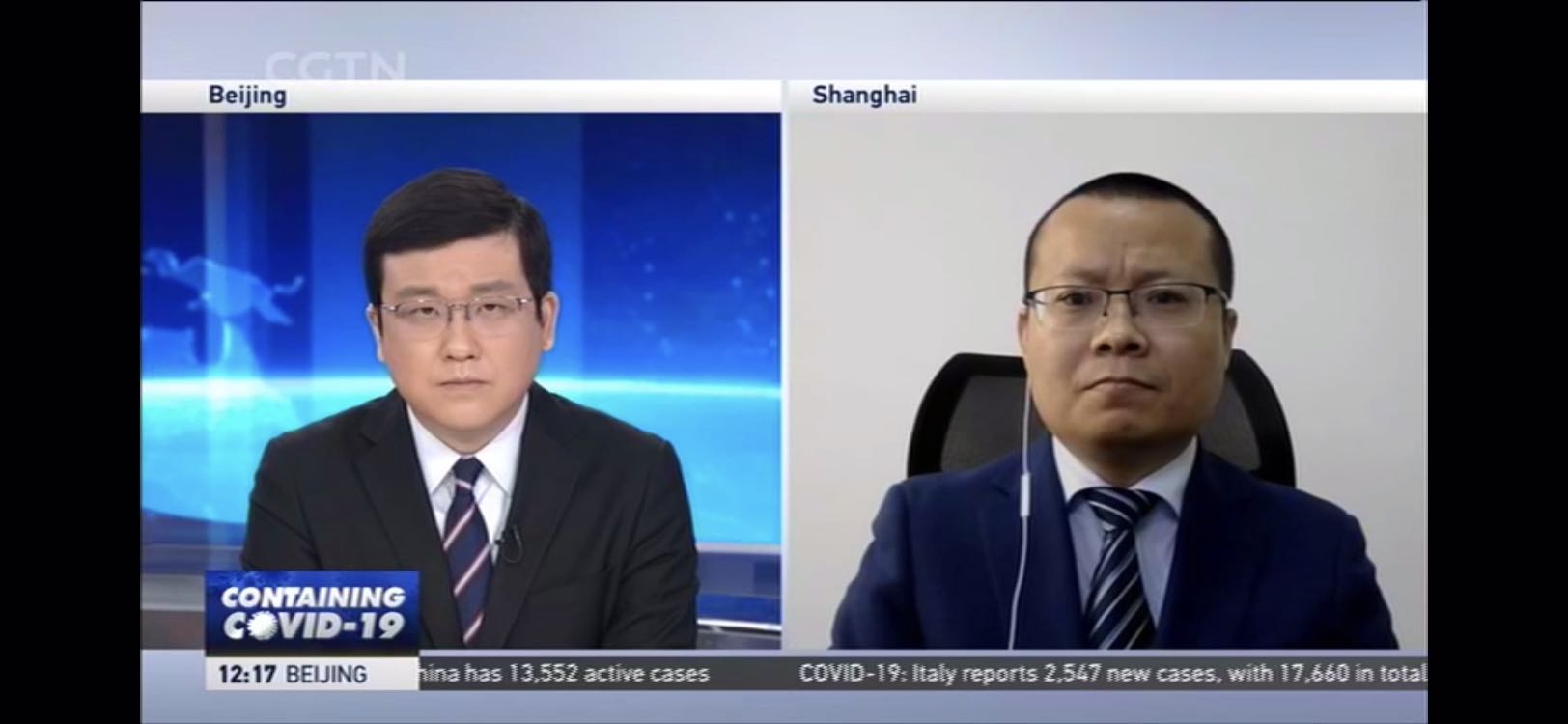
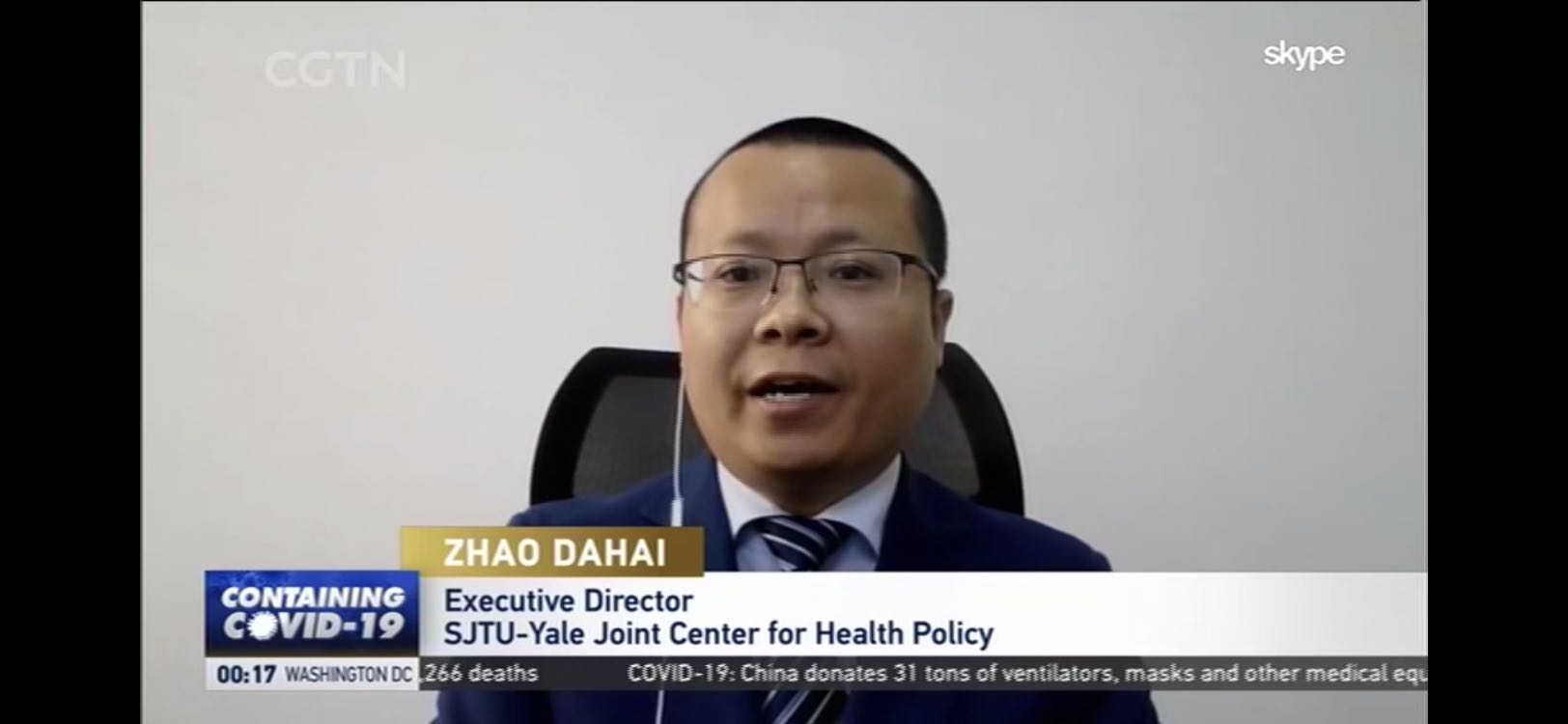
上海交通大学国际与公共事务学院博士生导师、上海交通大学-耶鲁大学卫生政策联合研究中心执行主任赵大海,自新冠肺炎疫情以来第八次接受中央电视台直播采访,也是第十四次接受央视/上视直播采访。在2020年3月14日中午12点的中央电视台英语频道CGTN《环球瞭望》节目,赵大海就有关英国疫情防控进行了评论。现将主要内容翻译并摘录如下。
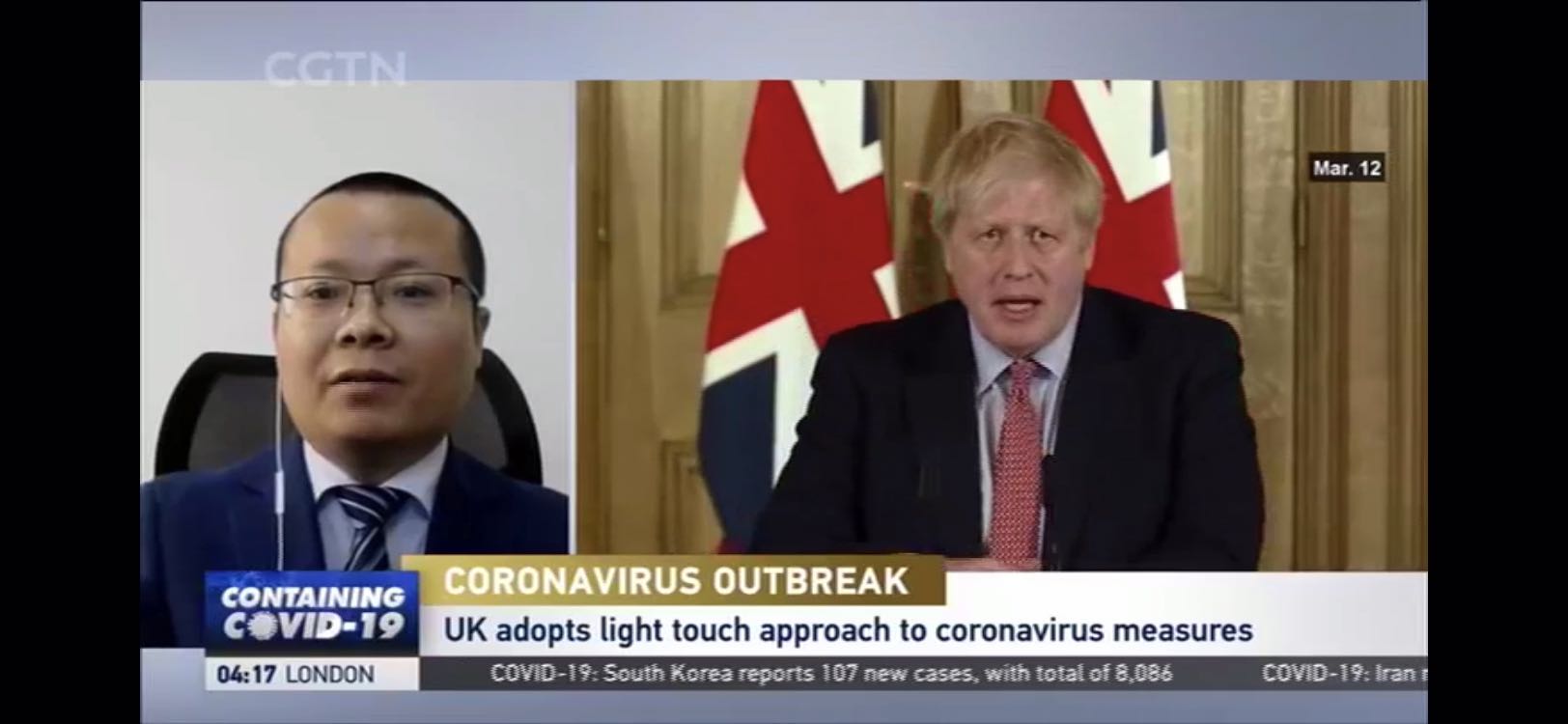
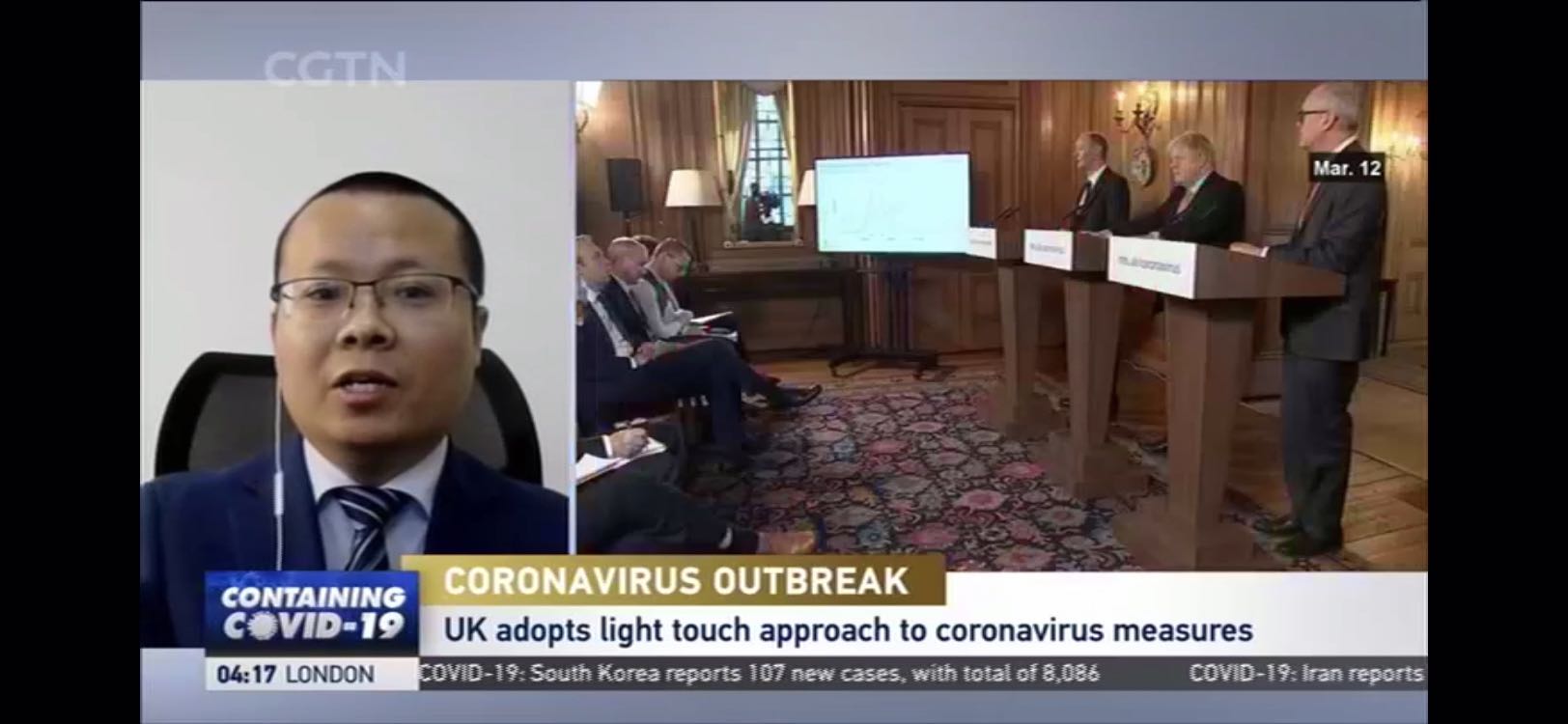
主持人:英国目前采用“人群免疫”的方式来进行新冠肺炎疫情防控。请问“人群免疫”的具体含义是什么?
赵大海:英国目前策略的目标是努力拖延疫情的峰值,减缓疫情的传播,而不是完全控制疫情,因为英国认为新冠肺炎未来每年都会出现。如果绝大多数人患有一种可以建立某种群体免疫力的轻度疾病,更多的人将能对这种疾病免疫。例如,英国首席科学顾问帕特里克·瓦兰斯说:“如果你非常严厉地控制某样东西,一旦放松,它会反弹,并在错误的时间反弹”。如果现在没有足够的人感染这种病毒,它将在明年冬天再次出现,英国的医疗保健系统将不堪重负。此外,英国也认为,政府的温和防疫战略将推迟新冠肺炎爆发高峰的到来,可以避免目前流感季节的医疗资源和医务人员短缺的高峰,并预期病毒的传播在温度逐渐升高后自然得到控制,疫情可以缓解。
主持人:您认为英国的这种策略会随着形势的变化而改变吗?
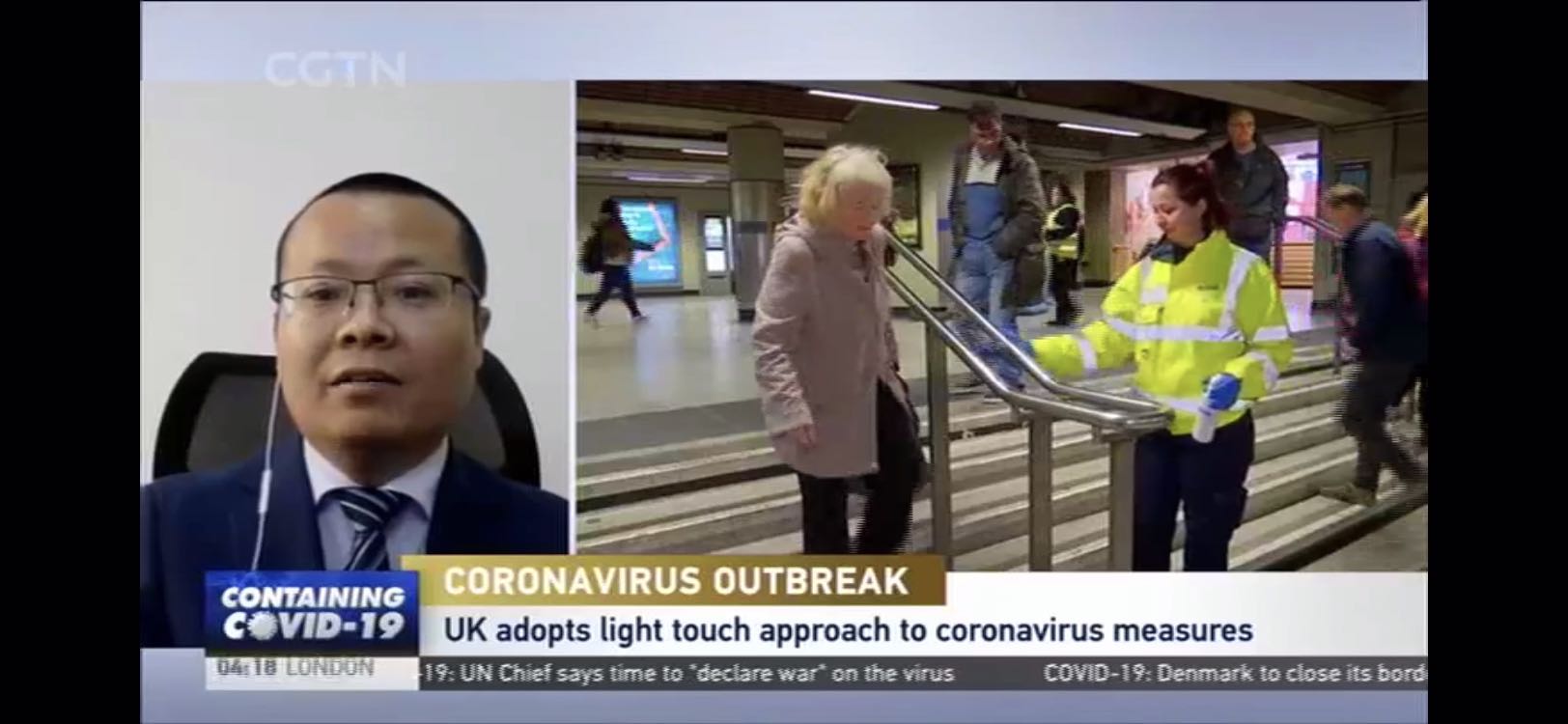
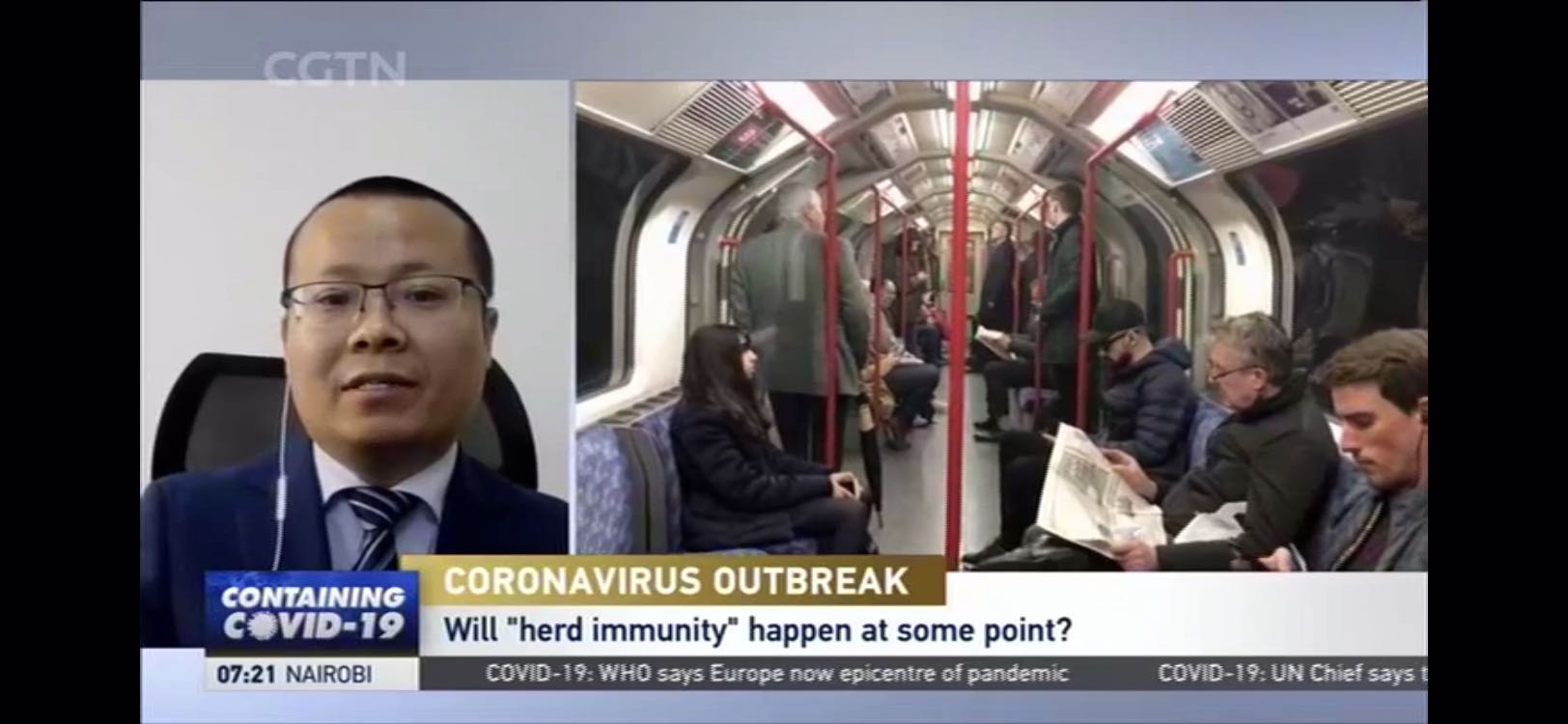
赵大海:我认为肯定会的。通过在中国抗击新冠肺炎的经验来看,我们都知道只有通过严格的筛查和隔离,只有通过早期隔离、早期发现和早期治疗才能控制疫情。在英国,这是一种完全不同的方法。这将使病毒在全体人群中传播得更快。此外,死亡率将会更高。如果英国政府不采取严厉措施,不改变这种人群免疫的疫情防控方法,新冠肺炎将在英国全面传播。预期会有更多的人被感染。事实上,通过在武汉控制新冠肺炎爆发的经验来看,前后持续了近两个月,武汉居民还没有发现所谓的"人群免疫"。因此,我不认为人群免疫是个好的办法。我也相信,随着英国新冠肺炎疫情的越来越严重,英国政府将采取严格的疫情防控措施,如关闭学校等。
供稿者:国务学院
日期:2020年2月23日
Dahai Zhao' 8th comments on TV during the Pandemic: UK’s "Moderate" Containing COVID-19 Suggests Reasons for Pessimism
Dahai Zhao, a doctoral supervisor of the School of International and Public Affairs of Shanghai Jiao Tong University and executive director of Shanghai Jiao Tong University-Yale University Joint Center for Health Policy have been interviewed by CGTV for the 8th time since containing COVID-19. At 12:00 AM on March 14, 2020, Zhao comment on the epidemic prevention and control of UK.
Anchor: UK has adopted a light touch approach to coronavirus measures, opting so far not to shut schools, the government aims for staging demand on the health services and developing the herd immunity in the population. What do you take on developing herd immunity, will it happen at some point?
Zhao: Many leaders and chief scientists who play huge impacts on the UK government’s decisions and strategies on coronavirus outbreak, believe that the goal is to try to reduce the peak and slow the spread of the epidemic, not to control it completely, because they argue the coronavirus will come in each year. And if the vast majority of people have a mild disease that builds some kind of group immunity, more people will be immune to the disease.
For example, UK Chief Scientific Adviser Patrick Vallance said” If you control something very harshly, once it relaxes, it bounces back, and it bounces back at the wrong time. He fears that if not enough people are infected with the virus now, it will reappear in the winter in next year, the health care system in England will be overwhelmed.
In addition, the supporters of herd immunity also argue that the government's light strategy will postpone the arrival of the peak of the coronavirus outbreak, can avoid the peak of resource and manpower shortage in the winter and spring flu season, and expect the spread of the virus to be naturally contained after the temperature gradually rises, and the outbreak can be eased.
Anchor: WHO says Europa is the epicenter of pandemic, with many European countries have taken aggressive measures, do you think the UK change the light strategy?
Zhao: Through the combating coronavirus experiences in China, we all know only by stringent screening and isolation, only by using early isolation, early detection, and early treatment can control the outbreak. What does in the UK is an absolutely different method. It will make the virus spread much faster among the whole population. In addition, the death rate will be higher. If the UK government does not carry out stringent measures, does not cancel the herd immunity method, Coronavirus will spread comprehensively in the UK. Much more expected people will be infected.
Actually, through the experiences in controlling coronavirus outbreak in Wuhan, it is about two months. We have not found the so-called herd immunity among Wuhan residents. Therefore, I absolutely do not think herd immunity is a good idea. I also believe the UK government will carry out stringent measures such as shutting down schools, etc, with more and more serious outbreak in the UK.
Contributor: SJTU School of International and Public Affairs
Data: Mar. 14, 2020

